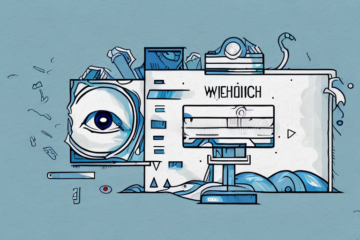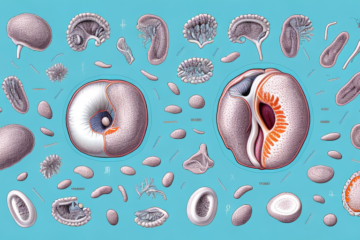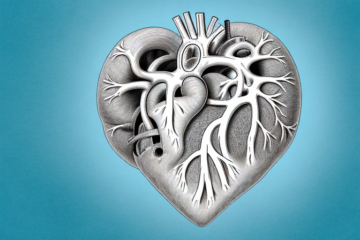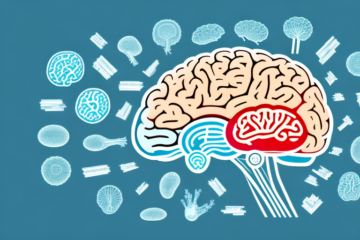Hyponatremia is a condition characterized by low levels of sodium in the blood. It can be a serious condition that requires appropriate treatment and management. In this comprehensive guide, we will discuss all aspects of hyponatremia, including its symptoms, causes, treatment options, and more, so you can better understand and manage this condition.
Understanding Hyponatremia: A Comprehensive Guide
Hyponatremia is a relatively common condition that can be caused by various factors. Sodium is an essential electrolyte in the body responsible for the regulation of fluid balance and maintaining normal cell operation. When the level of sodium in the body falls below a certain limit, it can result in the development of hyponatremia. This condition can cause a range of symptoms that can significantly affect an individual’s quality of life and overall well-being.
One of the most common causes of hyponatremia is excessive water intake, which can dilute the sodium levels in the body. This can occur in athletes who drink too much water during intense physical activity or in individuals who consume large amounts of water for weight loss purposes. Other causes of hyponatremia include certain medications, kidney or liver disease, hormonal imbalances, and heart failure.
The treatment of hyponatremia depends on the underlying cause and severity of the condition. Mild cases may only require fluid restriction, while more severe cases may require intravenous sodium replacement. It is important to seek medical attention if you experience symptoms of hyponatremia, such as nausea, headache, confusion, seizures, or coma.
What is Hyponatremia and How Does it Affect the Body?
Hyponatremia is a medical term used to describe a condition that occurs when the concentration of sodium in the blood falls below the normal range. The effects of hyponatremia can range from mild symptoms such as headache and nausea to severe symptoms such as seizures, confusion, and even coma in extreme cases.
Hyponatremia can be caused by a variety of factors, including excessive sweating, vomiting, diarrhea, and certain medications. It can also be a result of underlying medical conditions such as kidney disease, heart failure, and liver disease.
Treatment for hyponatremia depends on the underlying cause and severity of the condition. Mild cases may be treated with increased fluid and salt intake, while more severe cases may require hospitalization and intravenous sodium replacement therapy. It is important to seek medical attention if you experience any symptoms of hyponatremia, as it can be a life-threatening condition if left untreated.
The Role of Sodium in the Body: Why It’s Important
Sodium is a key electrolyte that plays a crucial role in maintaining the overall fluid balance in the body. It helps regulate the amount of water that enters and exits cells and controls blood volume. Additionally, it is responsible for various other body functions such as muscle and nerve function, blood pressure regulation, and maintaining the normal pH balance of the body.
However, consuming too much sodium can have negative effects on the body. High sodium intake has been linked to an increased risk of high blood pressure, heart disease, and stroke. It can also lead to fluid retention and swelling, especially in individuals with kidney problems or heart failure.
It is important to maintain a balance of sodium intake in the diet. The American Heart Association recommends consuming no more than 2,300 milligrams of sodium per day, with an ideal limit of no more than 1,500 milligrams per day for most adults. This can be achieved by reducing processed and packaged foods, choosing fresh fruits and vegetables, and using herbs and spices to flavor food instead of salt.
Common Symptoms of Hyponatremia You Should Know
Common symptoms of hyponatremia include headache, nausea, vomiting, fatigue, muscle weakness, and confusion. In severe cases, symptoms can include seizures and coma, which require immediate medical attention. It is important to note that the symptoms of hyponatremia can vary significantly, depending on the severity and underlying cause of the condition.
Hyponatremia is a condition that occurs when the level of sodium in your blood is too low. This can be caused by a variety of factors, including excessive sweating, vomiting, diarrhea, or the use of certain medications. It is also common among athletes who drink too much water during intense exercise. If left untreated, hyponatremia can lead to serious complications, such as brain swelling and respiratory arrest. Therefore, it is important to seek medical attention if you experience any of the symptoms associated with hyponatremia.
Causes of Hyponatremia: From Medication to Medical Conditions
Hyponatremia can be caused by various factors, including certain medications, medical conditions, and lifestyle choices. Diuretics, which are commonly used to treat high blood pressure and edema, are one of the most common causes of hyponatremia. Other medications, including some antidepressants and painkillers, can also lead to the development of hyponatremia. Medical conditions that can cause hyponatremia include kidney problems, hormonal imbalances, and liver cirrhosis.
In addition to medications and medical conditions, lifestyle choices can also contribute to the development of hyponatremia. Drinking excessive amounts of water, especially during intense physical activity, can dilute the sodium levels in the body and lead to hyponatremia. This is commonly seen in endurance athletes who consume large amounts of water without replenishing their sodium levels.
Another potential cause of hyponatremia is the syndrome of inappropriate antidiuretic hormone secretion (SIADH). This condition occurs when the body produces too much antidiuretic hormone, which can lead to water retention and dilution of sodium levels in the blood. SIADH can be caused by certain medications, such as antidepressants and antipsychotics, as well as medical conditions like lung cancer and brain tumors.
Diagnosing Hyponatremia: Tests and Procedures to Expect
Diagnosing hyponatremia involves a series of tests and procedures that help determine the severity of the condition and its underlying cause. Blood tests will be conducted to measure the serum sodium levels and other laboratory values. Urine tests may also be ordered to determine the kidney’s ability to conserve water. In some cases, imaging tests such as an MRI or CT scan may also be required to diagnose the underlying cause of hyponatremia.
In addition to these tests, a physical examination will be conducted to assess the patient’s overall health and to check for any signs of dehydration or fluid overload. The medical history of the patient will also be taken into consideration, including any medications or medical conditions that may be contributing to the development of hyponatremia. It is important to accurately diagnose and treat hyponatremia as it can lead to serious complications such as seizures, coma, and even death if left untreated.
Treatment Options for Hyponatremia: Medication and Lifestyle Changes
The treatment of hyponatremia depends on the severity of the condition and its underlying cause. Milder cases of hyponatremia may be managed by lifestyle changes, such as reducing fluid intake or increasing sodium intake through diet. In more severe cases, medications such as fluid-restricting agents and sodium replacement may be prescribed to alleviate the symptoms and elevate the serum sodium levels.
In addition to medication and lifestyle changes, it is important to address the underlying cause of hyponatremia. This may involve treating an underlying medical condition, such as heart failure or liver disease, or adjusting medications that may be contributing to the low sodium levels. It is also important to monitor sodium levels closely and make adjustments to treatment as needed to prevent complications such as seizures or brain swelling.
Coping with Hyponatremia: Tips for Managing Your Symptoms
Managing hyponatremia requires a combination of lifestyle changes and medical intervention. It is important to follow your doctor’s advice on fluid intake and medication use and to monitor the serum sodium levels regularly. In addition, making dietary changes such as increasing sodium intake can help alleviate symptoms and improve overall health. It is also essential to seek emotional support from friends and family members to help cope with the physical and emotional challenges of this condition.
Another important aspect of managing hyponatremia is to avoid certain medications and substances that can worsen the condition. These include diuretics, antidepressants, and pain medications. It is important to discuss any medications or supplements with your doctor before taking them. Additionally, staying hydrated is crucial, but it is important to avoid excessive fluid intake, especially during physical activity. Your doctor may recommend a specific fluid intake plan based on your individual needs and medical history.
Preventing Hyponatremia: What You Can Do to Lower Your Risk
Preventing hyponatremia involves making smart lifestyle choices such as limiting fluid intake, avoiding excessive sweating, and reviewing medication side effects with your healthcare provider. It is important to maintain regular check-ups with your doctor to monitor your electrolyte levels and adjust treatment plans as needed. In addition, it is essential to stay hydrated and maintain good overall health through a balanced diet and regular exercise.
Another important factor in preventing hyponatremia is being aware of the signs and symptoms. These can include nausea, headache, confusion, seizures, and in severe cases, coma or death. If you experience any of these symptoms, seek medical attention immediately. It is also important to be cautious when participating in endurance sports or activities that involve excessive sweating, as this can increase your risk of developing hyponatremia. By staying informed and taking proactive steps to maintain your health, you can lower your risk of developing this potentially dangerous condition.
Complications of Hyponatremia: Understanding the Risks Involved
Hyponatremia can lead to various complications that can significantly affect an individual’s health and quality of life. Severe hyponatremia can lead to brain swelling, seizures, and coma, which are potentially life-threatening. Long-term effects can include permanent brain damage and memory impairment, which can impair daily functioning.
In addition to the immediate and long-term effects mentioned above, hyponatremia can also lead to other complications. For example, it can cause nausea, vomiting, and headaches, which can significantly impact an individual’s daily life. Hyponatremia can also lead to muscle cramps, weakness, and fatigue, making it difficult to perform physical activities. Furthermore, hyponatremia can affect the balance of fluids in the body, leading to swelling in the legs, arms, and other parts of the body. It is important to seek medical attention if you experience any symptoms of hyponatremia to prevent these complications from occurring.
When to Seek Medical Help for Hyponatremia: Warning Signs to Watch For
If you experience any symptoms of hyponatremia, including nausea, vomiting, confusion, or seizures, seek immediate medical attention. Early diagnosis and treatment of hyponatremia can significantly improve your prognosis and outcome. In addition, it is important to be aware of the potential side effects of medication that can lead to hyponatremia and discuss these with your doctor before starting any new drug regimen.
In conclusion, hyponatremia is a significant medical condition that can have severe and potentially life-threatening consequences if left untreated. Understanding the symptoms, causes, and treatment options can help individuals cope with this condition and lead fulfilling lives.
It is important to note that certain populations are at a higher risk for developing hyponatremia, including endurance athletes, individuals with kidney or liver disease, and those taking certain medications. If you fall into one of these categories, it is especially important to monitor your sodium levels and seek medical attention if you experience any symptoms of hyponatremia. Additionally, staying properly hydrated and maintaining a balanced diet can help prevent the development of hyponatremia.










